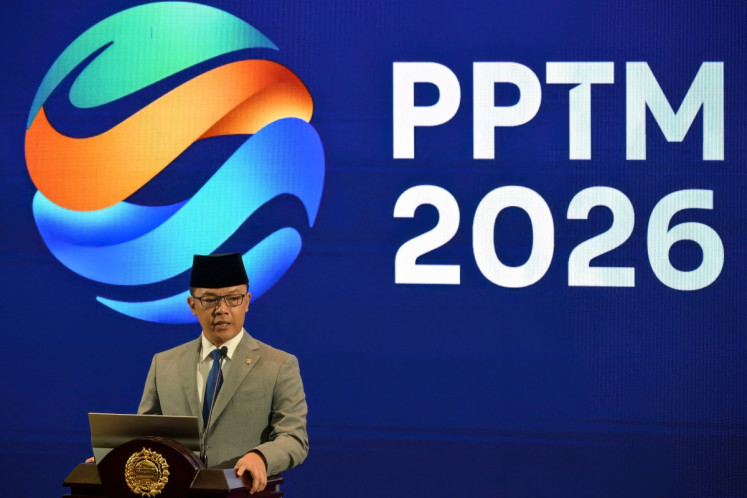Popular Reads
Top Results
Can't find what you're looking for?
View all search resultsPopular Reads
Top Results
Can't find what you're looking for?
View all search resultsSeychelles learns from Indonesia how to take care of elderly
The Seychelles, an archipelagic nation off the coast of East Africa, plans to adopt Indonesia’s elderly development program to empower its own elders
Change text size
Gift Premium Articles
to Anyone
T
he Seychelles, an archipelagic nation off the coast of East Africa, plans to adopt Indonesia’s elderly development program to empower its own elders.
A Seychelles Health and Social Affairs Ministry 2016 document shows that the country’s senior population is projected to grow over the next few decades. The document states that the number of people aged 65 and older has more than tripled from just over 2,000 in 1960 to over 10,000 in 2010.
“In 2015, the number of older people stood at 10,900, or 11.25 percent of the population,” the document says. “The old age dependency ratio will triple from 11.2 in 2015 to 36 in 2050.”
The dependency ratio compares the number of people aged zero to 14 years old and those aged 65 and older, also know as dependents, to those aged 15 to 64, also known as the productive population.
Seychelles Family Affairs Minister Mitchy Larue, who is visiting Bali, said recently that elders in the country were placed in state-owned facilities named Regional Homes, where the elderly spend the rest of their lives.
In Indonesia, particularly in a family planning (KB) village in Penarungan, Bali, the minister saw that elders could still stay with their families and had their own productive activities, such as making handicrafts and cooking traditional Balinese dishes to be sold to the market.
“I feel there is a lack [of activities at the Regional Homes]. We need to bring more activities for the elders there, and today’s visit gives us an idea of the type of activities we can bring to the homes,” Larue said on Wednesday after visiting Penarungan village.
The visit was held on the sidelines of an interministerial conference on the South-South Triangular Cooperation, taking place in Kuta, Bali, from Tuesday to Thursday.
On Tuesday, Indonesia and the Seychelles signed a memorandum of understanding about their cooperation in the field of population, family planning, reproductive health and family development.
The KB village was inaugurated by the National Population and Family Planning Board (BKKBN) in 2016. It aims to control the population size and improve family welfare.
As of today, there are already around 9,046 KB villages across the country, and the government is planning to establish 4,800 more of such villages this year.
A village that can be chosen as a KB village must have a large poor population and low contraceptive prevalence rate (CPR) — meaning many married couples in the village still do not use contraception.
Several development programs are held in the existing KB villages, targeting all elements of society, young and old.
Married couples, for example, are provided with information about the importance of family planning as well as the use of contraception. Parents with young adults, meanwhile, are told about the minimum age for marriage so they will not push or allow their children to get married early.
In Penarungan village, the people form groups to cultivate mushrooms, make jaja uli (traditional Balinese cake), cook tumpeng (cone-shaped rice dish) and breed livestock.
Penarungan village head Ni Wayan Erni said the village had seen many improvements since being officially inaugurated as a KB village by Coordinating Human Development and Culture Minister Puan Maharani in March 2016.
In 2016, the village had 400 poor families, while now the figure has significantly decreased to only 128 families. “The family development programs have helped us develop family welfare in Penarungan,” Erni said.
A villager, Agung Anom Suryowati, 50, said the development programs had definitely improved the villagers’ economy as elders now no longer are a burden on their families.
“By cooking tumpeng, for example, each of the elders can earn Rp 50,000 [US$3.40] per day. That amount of money is more than enough to make ends meet.”










